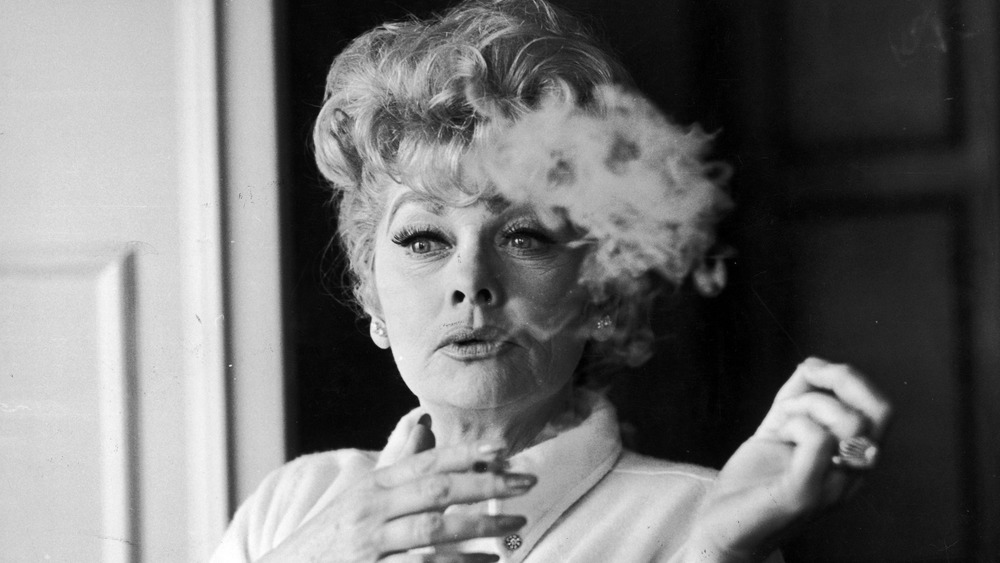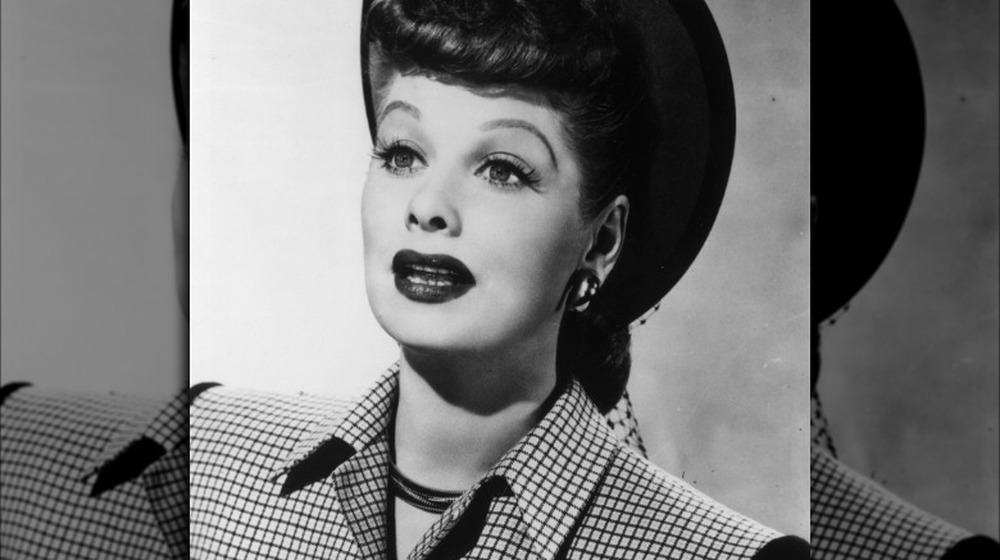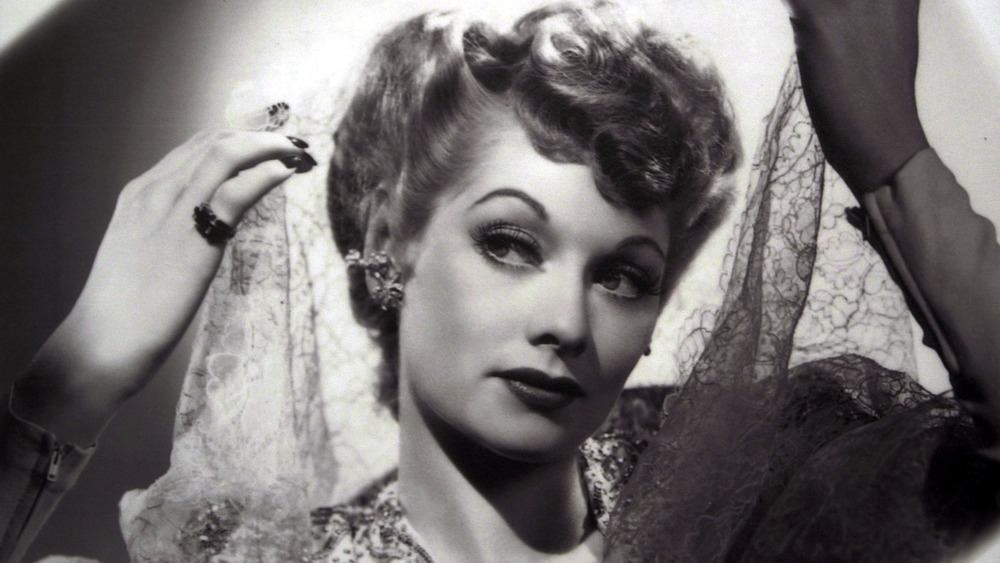The Incident That Cost Lucille Ball's Family Everything
Few comedians were as famous in the '50s as comedy legend Lucille Ball. Her first sitcom only ran for six seasons, but I love Lucy would secure Ball's fame for decades. The reruns of her show have been watched for generations, and the comedian's iconic red hair and signature fake cry are still loved by millions. On top of that, Lucille Ball was a game-changer in the world of television, especially for women. She was the first woman to head a production company, the first to appear pregnant on TV, and she won four Emmys out of 13 nominations, plus two special honors from the Television Academy.
Ball's accomplishments have been recognized with two stars (one for television, one for movies) on the Hollywood Walk of Fame. As Biography reports, the actress earned her stars by paving the way for other female television icons such as Mary Tyler Moore, who made it after all thanks to Ball's groundbreaking work, as well as Cindy Williams and Penny Marshall from Laverne & Shirley. Despite all of her achievements, Lucy's life succumbed to one age-old truth: Comedy comes from tragedy.
Pretty much from the start, Ball's life was filled with tragedy. Her father died when she was young, she was abused by her mother, her marriage to Desi Arnaz was frequently difficult — the list goes on. But, there was one incident in particular that tragically changed young Lucille Ball's family forever, and it definitely wasn't for the better.
Gun safety is paramount
Today, the idea of kids using is an oddity, if not downright terrifying, given the tragic shootings the United States has witnessed over the years. That wasn't necessarily true 90 years ago, especially in rural communities where guns were used to help feed a family, and feeding the family was everybody's job. Even though gun ownership and use might have been more widespread, and spread across age groups, there were still accidents. Curly from The Three Stooges got his unique gait as the result of an accidental gunshot wound. (Moe saved his life by rushing him to the hospital.) Some of those accidents were deeply tragic.
On Lucille Ball's 16th birthday, as the comedy legend explains in her autobiography Love, Lucy, her grandfather showed up with a .22 rifle in a paper bag, presumably for her little brother, Freddy, who was close to his 12th birthday. Freddy wanted to try his piece out right away, but their grandfather insisted they wait. The following morning, the Ball children and the neighborhood kids (Cleo, Johanna, and Warner) took the child-sized rifle out for a go at Freddy's excited behest. They lined up tin cans in the backyard, expecting to have a little plink-plink good time, but the makeshift shooting range would soon turn into the site of a devastating event.
A terrible accident and a terrible loss
Lucille's stepfather, according to her autobiography, was a stickler for gun safety. He meticulously gave the children a thorough rundown on the .22 caliber firearm and made sure they were shooting toward an open field with no houses or people in sight. The neighborhood boy, Warner, was only eight years old and wasn't exactly invited to the shoot, but since he'd shown up anyway, Ball's stepdad warned him to sit down and stay out of the way.
Freddy had just finished up firing, and it was Johanna's turn. She was the same age as Freddy, which to the group was old enough to fire the small rifle. She picked up the gun, snugged the butt to her shoulder, and closed one eye when an abrupt "War-ner, get home this minute!" bellowed from the young kid's mother. Johanna started, and the gun went off. Warner had been shot.
Warner didn't die from the small bullet. Instead, the projectile fired right through his spinal cord and lungs, lodging in his chest and leaving him paralyzed from the waist down. Naturally, Warner's parents sued the Ball family and won. "They took our house, the furnishings that [Lucille's mother] DeDe had bought so laboriously on time, week after week, the insurance — everything," Lucille writes. "My grandfather never worked again. The heart went out of him. It ruined Celoron [the town they lived in] for us; it destroyed our life together there."


